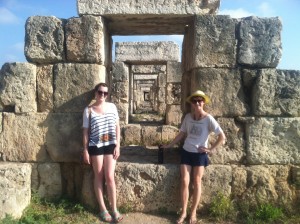I think we can all agree that the past week has been tense. From the protests at CMC, marches across the 5Cs, the list of ISIS target cities in the U.S., and shootings and bombings in Paris, Beirut, Baghdad, and Syria – it has been unbelievably difficult to concentrate on anything school or career related.
And that is totally allowed.
Your tests, your papers, your meetings, your applications, even your interviews can wait. If you are passionate about changing the world, and the time comes for you to act on the deep and dedicated feelings you have for making a difference, do what you need to do. You can, and should, prioritize whatever you want to prioritize. That being said, I’d like to offer some help in navigating those conversations with your professors and your employers who may not feel the same way about how you want to spend your time.
When talking to a professor…
Keep the correspondence short and sweet. Since having this conversation is accessible in person, try to catch your professor during office hours. But if that’s not an option, email is definitely a preferred form of communication on campus. Explain what will be turned in late or what you will miss. But also make sure that you take ownership of the situation with phrases such as “I understand the grade on my paper will be lowered due to late submission” or “I plan to make up for our missed discussion in whatever way is best for me to do so.” It is important to acknowledge the results of your actions in order to show that you still care about school, but your cares must now be focused on something more pressing.
When talking to an interviewer or recruiter…
So that protest or debate you wanted to attend now interferes with a scheduled interview. The best way to contact is to call or email, depending on the relationship you have with the interviewer or recruiter. If you’ve spoken on the phone more than twice, call and leave a voicemail. But if most of your conversations have taken place in person or via email, stick to email. Again, this message should be short and sweet. But because the decision to reschedule or cancel an interview is treading tricky waters, you’re also going to need to explain a little bit more why the event or issue matters to you. Professors are on campus, and for the most part, they know when students are being socially and politically active. But recruiters aren’t on campus all the time, so it’s vital that you explain a little more. Within two to three sentences, detail (1) what’s going on, (2) what it means personally to you, and (3) why you feel the need to participate.
When you fall behind on applications…
Breathe. Close your eyes. Say “it will get done.” Because you know it will, just maybe in a couple days. Draw or print a weekly calendar and write in the events you need to attend, as well as any upcoming deadlines for applications or papers. Try to give time frames for each obligation in your calendar too – that way you can really hold yourself accountable to a schedule.
Sometimes, you need to focus on the things much larger than school and much larger than jobs. And that’s OK. Being a socially-minded individual is arguably more fulfilling than finishing that last paragraph of a paper or completing the one missing accomplishment statement on your resume. But if you do start to feel behind, take advantage of the resources CP&R provides – such as drop-in hours and counseling sessions.
You can do it all, and you can make a difference in the world along the way.

